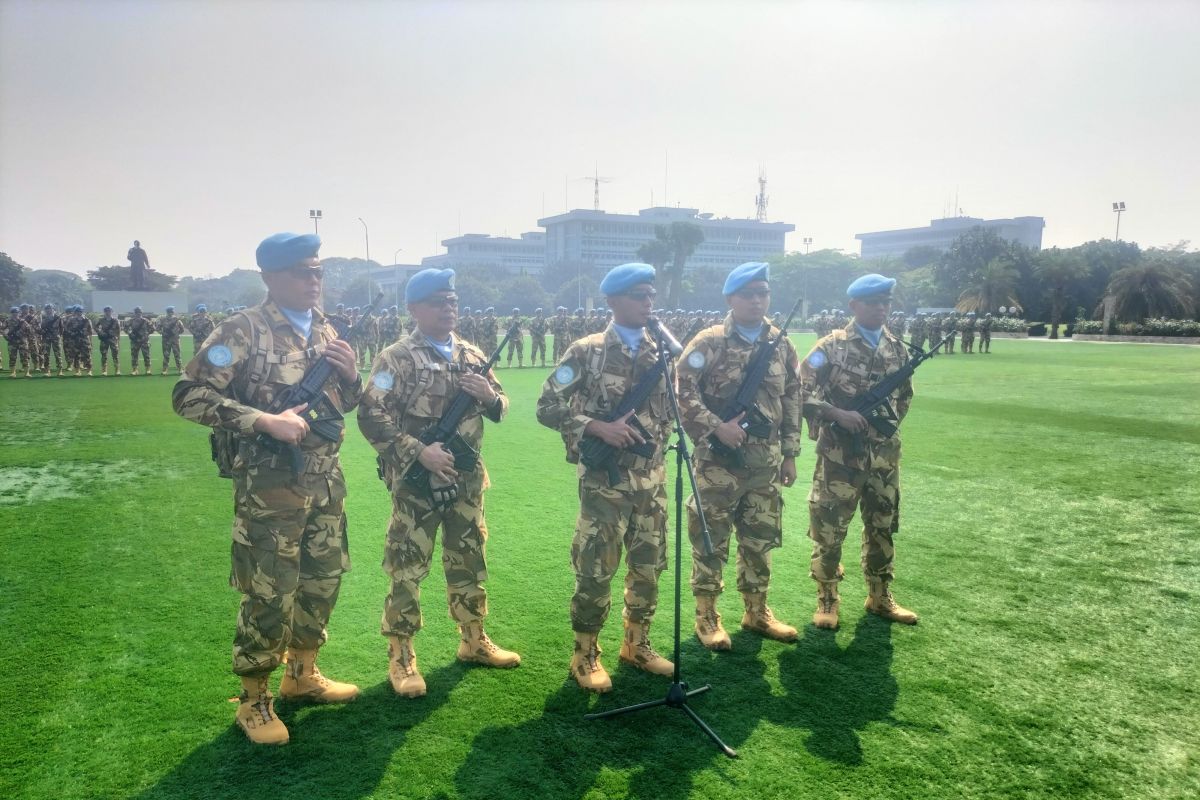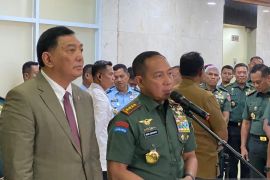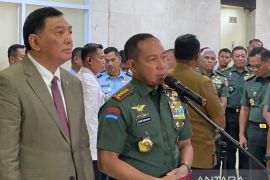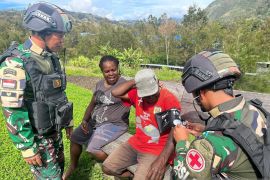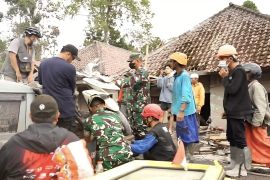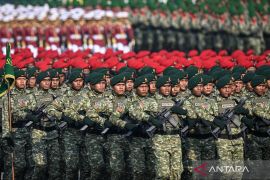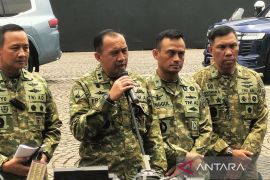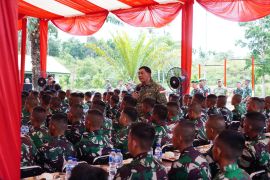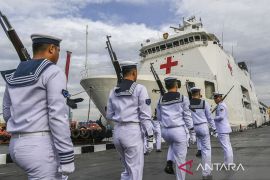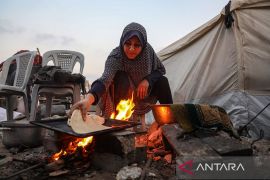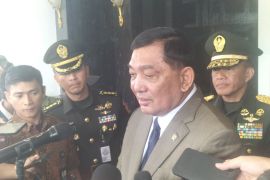This commitment is evident from the active participation of the Indonesian National Armed Forces (TNI) in United Nations peacekeeping missions across the globe.
Beyond its primary duty of safeguarding national security and territorial integrity, the military has also made its mark in humanitarian missions overseas, including the UN Organization Stabilization Mission in DR Congo (MONUSCO).
Last year, the TNI dispatched the Kizi (Kompi Zeni/Engineer Company) task force to help maintain order, keep the peace, and ease tensions in the civil war-torn African country.
The task force comprising army, navy, and air force officers left Indonesia on April 24, 2024, with one crucial objective: to be accepted by the local community.
Speaking to ANTARA News Agency, commander of the task force, Lieutenant Colonel Dili Eko Setyawan, recounted the challenges of ensuring the 173 TNI peacekeepers under his watch remained safe.
Though it wasn’t his first deployment to Africa, it was his first time commanding a peacekeeping mission.
He recalled that his team landed at an airport in Goma, the capital of North Kivu province, DR Congo. From there, they set out on a road trip to Mavivi, where they spent a year serving and protecting civilians from the spillover of sporadic armed conflicts.
Part of the task force’s job was to renovate airports, improve roads, repair surveillance posts, and provide health services.
Earning local trust
Carrying out the mission was anything but easy. Setyawan remembers how difficult it was to win the trust of locals, some of whom believed the Indonesian troops’ presence would not change anything for the better.
At times, the locals’ opposition escalated into mass demonstrations in front of the peacekeeping posts, which prompted Setyawan and his soldiers to devise creative solutions.
After a survey, it became clear to Setyawan that their new station was ideal for growing cassava, sweet potatoes, and corn.
That sparked an idea: introducing purple yam and Ubi Cilembu — a popular sweet potato variety from Cilembu village in West Java — to the people of Mavivi.
With this in mind, personnel from the Kizi task force began inviting locals to cultivate the crop, offering guidance on how to plant, care, and harvest it.
The sweet potato’s size and taste made it an instant local favorite.
Over time, more and more people were drawn to the new crop — even those who had initially rejected the Indonesian peacekeepers.
This, however, wasn’t the finish line. The troops soon learned that some residents feared that cultivating the crop might draw the attention of hostile armed groups.
This fear was understandable, considering that the people of Mavivi had often seen their property and crops ransacked by such groups. So, the Kizi team brainstormed ways to address the issue.
The commander realized that the problem partly stemmed from the lack of positive, engaging activities for local youth, which made them more susceptible to being recruited by armed groups.
To address this, Setyawan turned his attention to sports, building not one but two dirt football fields the size of standard international pitches -- complete with goalposts and balls for the locals.
It took the peacekeepers about a month to get it all done.
The football fields emerged not only as sports venues but also as new sources of entertainment and symbols of hope for people living in the midst of seemingly endless conflict.
Both the Ubi Cilembu and the football fields played a critical role in the mission’s success — they proved to the locals that they had no reason to reject, let alone drive away, the well-intentioned Indonesian troops.
Thereafter, the task force found it much easier to carry out public service initiatives such as providing free medical treatment, building infrastructure, and managing waste.
Setyawan and his team returned to Indonesia in mid-2025. Although much has been done for the local community, he said more is needed — a mission he has entrusted to the next TNI delegation bound for DR Congo.
Winning national praise
Commander of the TNI, General Agus Subiyanto, conveyed the nation’s appreciation to the Kizi task force for its peacekeeping efforts in DR Congo.
At a ceremony to welcome the returning 173 soldiers at the TNI Headquarters in East Jakarta, he said that the personnel had shown devotion and a high level of professionalism during their deployment abroad.
His praise was conveyed in a message read by TNI Inspector General, Lieutenant General Muhammad Saleh.
“Thank you for carrying out your duty with dedication, discipline, professionalism, and loyalty, making the UN peacekeeping mission a success,” he said, quoting the TNI Commander at the ceremony on July 10, 2025.
He added that the Indonesian task force had left its mark by building infrastructure and providing public services to local communities.
The peacekeepers, he said, renovated airports, improved main roads, set up emergency bridges, built surveillance posts, and developed several public facilities needed by residents under the mandate of the United Nations.
Saleh also commended the personnel for their humane approach in earning the locals’ trust.
He expressed the hope that the success of the peacekeeping force would further enhance the TNI’s credibility on the global stage.
Translator: Walda M, Tegar Nurfitra
Editor: Primayanti
Copyright © ANTARA 2025
